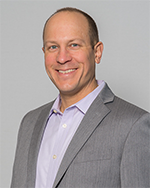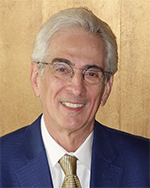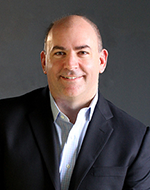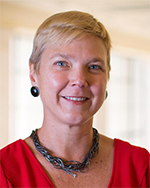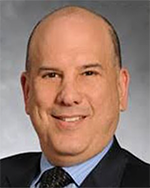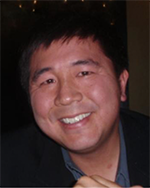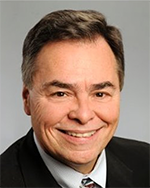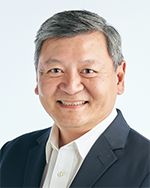External Advisory Board
CRISPR Therapeutics
Gemmiti was the vice president of technical operations at CRISPR Therapeutics. He has dedicated his 25-year career to cell therapy and regenerative medicine, through both industry and academic roles. Before his last role, Gemmiti was the CMC lead for CASGEVY, the first CRISPR gene-edited therapeutic approved by any health authority (sickle cell anemia and b-thalassemia). He is also credited with establishing TechOps and CMC for the In Vivo delivery franchise, resulting in two programs currently in clinical trials.
Dasher is the founder and CEO of Glui Inc., a global advertising company that creates engagement experiences in all digital environments. An accomplished entrepreneur, investor, and lawyer, Dasher has more than 25 years of experience in venture capital, private equity, M&A, and investment management. Her diverse career includes serving as principal and general counsel at STW Fixed Income Management, where she helped grow assets under management to more than $12 billion and co-led the firm's sale to Schroders.
Dasher began her career as an attorney at O’Melveny & Myers and Sheppard, Mullin, Richter & Hampton, managing significant transactions in venture capital, public and private offerings, and M&A. Her passion for innovation and community involvement is evident through her support of the Georgia Tech community and local scientific research. Dasher serves on the advisory boards for the Parker H. Petit Institute for Bioengineering and Bioscience and the Alexander-Tharpe Athletic Fund at Georgia Tech and is a member, past board member, and president-elect of the ARCS Foundation, which supports STEM students at Morehouse, Emory, UGA, and Georgia Tech. She graduated magna cum laude from Cornell Law School and is a member of the Order of the Coif. She also holds an undergraduate degree in European intellectual history, graduating with honors from the University of California, Santa Cruz.
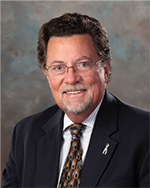 G. Russell Bell, Ph.D.
G. Russell Bell, Ph.D.
Chief Scientific Officer Emeritus
Beckman Coulter, Inc.
Emeritus Petit Institute Advisory Board Member
Throughout his career, Bell spearheaded the development of many diagnostic products in cancer, men’s and women’s health, and cardiovascular disease. Most notably he led efforts resulting in approval of Prostate Specific Antigen (PSA) as the first blood test for early detection of cancer in addition to its use in monitoring.
Bell was president, medical director and owner of Jacksonville Reference Laboratories, Inc., in Jacksonville, Fla., from 1973 to 1978. He joined E.I. Du Pont De Nemours & Co. in 1979 in the Clinical Systems Division. In 1987, he became responsible for all diagnostic systems research and development for the $1B division. He joined Hybritech, Inc., a subsidiary of Eli Lilly and Company in August 1989 as vice president for diagnostics research and development. He was appointed president and CEO in September 1994.
He has chaired the National Advisory Council of the Betty Irene Moore School of Nursing at UC Davis since 2010 and served as member of the External Advisory Board of the Petit Institute for Bioengineering and Bioscience at Georgia Tech from 1996 to 2017. He has served on the board of the Wallace H. Coulter Foundation and was President of the Beckman Coulter Foundation, institutions dedicated to philanthropy in medical and translational research and education. Bell is a former Chairman of the St. Peter’s Health Foundation and now serves on the Board of Directors of St. Peter’s Health, Helena, Montana. He now serves on the Board of Trustees, the Biomedical Sciences Advisory and Institutional Research boards at Carroll College and as a volunteer tutor in math and science at Smith Elementary School.
Born in Atlanta, Bell earned his Bachelor of Science degree in Applied Biology in 1969 and a Master of Science degree in 1970 from Georgia Tech. He received his doctorate in biochemistry in 1973 from the University of Georgia.
Paul Citron retired in 2003 from Medtronic, Inc., a pioneer in the medical device industry and the largest developer of implantable therapeutic devices. He was Vice President of Technology Policy and Academic Relations. Previously he was Medtronic’s Vice President of Science and Technology for over 15 years, responsible for corporate-wide assessment and coordination of technology initiatives and for prioritization and funding of corporate research. These executive positions followed a progression of R&D assignments over his 32-year career at Medtronic where he developed and helped bring to the bedside technologies that advanced the utility, safety, and effectiveness of innovative implanted medical devices. He has authored numerous medical technology peer reviewed publications and has been an invited speaker at biomedical engineering conferences, workshops, symposia, and university classrooms. Citron holds nine U.S. medical device patents, including one that was designated “Patent of Distinction” by Medtronic for its positive impact on patient wellbeing. It permitted for the first-time reliable long-term cardiac stimulation without the need for an open-chest surgical procedure. Consequently, this innovation rapidly became the “treatment of choice” in the medical community. It sharply reduced the incidence of interruption of pacemaker stimulation because of electrode dislodgement and the need for urgent reoperation to restore effective stimulation. Market growth for pacemakers was accelerated because implantation could be performed on an out-patient basis and made it possible for frail patients to receive pacemaker therapy. Every pacemaker company adopted this innovation and it continues to be sold 40 years after it first entered the market.
Citron has a B.S.E.E (1969) from Drexel University and an M.S.E.E. (1972) from the University of Minnesota. In 2013 he received an honorary Ph.D. in biomedical engineering from Drexel University. He was elected a Founding Fellow of the American Institute of Medical and Biological Engineering (AIMBE) in 1993 and in 2018 was chosen as president-elect of its College of Fellows. Citron was elected to the National Academy of Engineering (NAE) in 2003 where he has served on its Peer Committee, Committee on Membership, and the Draper Prize Committee as its Chair in 2012. He served two terms as an NAE Councilor and was a member of the National Academies’ Committee on Science, Engineering, and Public Policy. He served on three National Academy of Medicine consensus studies: Safe Medical Devices for Children (2005); Rare Diseases and Orphan Products: Accelerating Research and Development (2011); and, Identifying and Prioritizing New Preventive Vaccines for Development: Phase I, II, and III. In 2015 he was appointed to the Academy of Medicine’s Health and Medicine Division advisory committee. Citron has taught a graduate course on corporate entrepreneurship at Georgia Tech and the University of California San Diego as well as invited lectures to undergraduate bioengineering students at UCSD. He is an advisor to start-up firms in the medical device and biotechnology sector. He is also a member of the Salk Institute for Biological Studies (La Jolla, CA) Leadership Institute, an external advisory body. He currently serves on the UC San Diego Health Board of Advisors as well as the UCSD Bioengineering Board of Trustees.
Medtown Ventures
Chris Fair has over 25 years of senior executive management and entrepreneurial experience focused in medical device and biologic platforms. Fair’s operational experience covers areas such as strategic market plans, product development, sales, marketing, finance, and the ability to take platform technologies from creation through commercialization in the most efficient pathway possible.
Fair began his medical device career at DePuy, where alongside a small team of personnel, helped to build the spine franchise from a $10M business to a $350M business within a 9 year timeframe. Fair then served as Vice President Sales and Marketing, St. Francis Medical Technologies where he was responsible for the U.S. launch of the XSTOP device. The launch of the XSTOP achieved $43M in U.S. revenue in the first 11 months and resulted in the largest medical device multiple with an acquisition price of $725M to Kyphon. After St. Francis, Fair served as the COO of MedShape Solutions, an innovative shape memory polymer and nitinol company, where he remains an active investor. Fair went on to start Amniox Medical, a spin out company based on amniotic tissue therapies for markets outside of ophthalmology. In the company’s first year of operation, Amniox surpassed all revenue targets and achieved profitability. Most recently, Fair served as President and CEO of a private equity backed spine venture, Amendia/Spinal Elements, a $100M + spinal implant company based in Carlsbad, CA.
Fair serves on the boards of Spinal Elements, CellectCell, and 510Kardiac. Fair received his BS Business Administration from the University of Richmond.
Massachusetts Institute of Technology
Director, Center for Gynepathology Research
Linda G. Griffith, Ph.D., is the School of Engineering Teaching Innovation Professor of Biological and Mechanical Engineering and MacVicar Fellow at MIT, where she directs the Center for Gynepathology Research and the DARPA/NIH-funded Human Physiome on a Chip Program. Griffith received a bachelor's degree from Georgia Tech and a Ph.D. degree from the University of California at Berkeley, both in chemical engineering. Griffith’s research is in the field of regenerative medicine and tissue engineering. Her laboratory, in collaboration with J. Upton and C. Vacanti, was the first to combine a degradable scaffold with donor cells to create tissue-engineered cartilage in the shape of a human ear. The 3D printing process she co-invented for creation of complex scaffolds is used for manufacture of FDA-approved scaffolds for bone regeneration. She is also a pioneer in devising ways to control nano-scale stimulation of cells by molecular cues, and in creation of 3D tissue models for drug development. Her work has been featured on television documentary shows including Scientific American Frontiers. She is a member of the National Academy of Engineering, and the recipient of a MacArthur Foundation Fellowship, the Popular Science Brilliant 10 Award, NSF Presidential Young Investigator Award, the MIT Class of 1960 Teaching Innovation Award, Radcliffe Fellow, and several awards from professional societies. She has served as a member of the advisory councils for the National Institute for Dental and Craniofacial Research and the National Institute of Arthritis, Musculoskeletal and Skin Diseases at NIH. As chair of the undergraduate curriculum committee for biological engineering at MIT, she led development of the new Biological Engineering SB degree program, which was approved in 2005 as MIT’s first new undergraduate major in 39 years.
 Anjali Kumar, Ph.D.
Anjali Kumar, Ph.D.External Innovation Search and Evaluation
Johnson and Johnson Innovation
Anjali Kumar, Ph.D., has 20 years of experience with increasing responsibility in the biopharmaceutical industry, and is currently responsible for developing an external early-stage innovation pipeline aligned with the strategies of Johnson & Johnson’s businesses, with primary priority given to the pharmaceutical sector. She previously served as the Due Diligence Lead, Corporate Development for Shire Pharmaceuticals, and before that she was the vice president, nonclinical R&D and scientific affairs at Flexion Therapeutics, Inc. She has a strong scientific background and drug discovery and development experience gained in large pharmaceutical and small biotech company environments. She has experience advancing several small molecules and proteins into initial clinical development and continuing to support them through later stages of development and eventual regulatory approval. Kumar has worked in the area of inflammation in musculoskeletal, respiratory, and cardiovascular diseases. She was previously vice president of R&D at Clinquest, Inc. where she led the strategic drug development consulting team that worked on multiple programs in both the U.S. and in Europe. Prior to that, she was senior director, pharmacology at Critical Therapeutics, Inc. and principal scientist and project leader at Wyeth Research/Genetics Institute. She received her postdoctoral training at Pharmacia and Upjohn, Inc. She holds a Ph.D. in bioengineering from Georgia Institute of Technology and a Bachelor’s degree in Chemical Engineering from the Indian Institute of Technology.
BioSerenity
Bruce Lavin, M.D. has 25 years of clinical experience and more than 15 years of industry experience, leading medical affairs and clinical development programs and divisions for major pharmaceutical companies in the areas of immunology, virology and anti-infectives. Most recently, Lavin was head of external engagement and policy within the neurology unit of UCB, Inc. Lavin was the vice president and therapeutic head for Bristol-Myers Squibb where he led the U.S. clinical and launch preparations for anti-virals in HIV, HCV, rheumatology, and transplant. Prior to Bristol-Myers Squibb, he held senior medical roles for both Novartis and Sanofi-Aventis in the areas of infectious disease, immunology, transplantation, virology and the central nervous system. Additionally, Lavin has a vast military career, currently serving as a medical doctor for the U.S. Navy Reserve. From 2009-2010, he provided medical care and support in a combat area during Operation Iraqi Freedom. Lavin holds a bachelor’s degree from the University of California Irvine and a master’s of public health from the University of California, Los Angeles. He received his medical degree from the F. Herbert School of Medicine at Uniformed Services University of the Health Sciences in Bethesda, Maryland.
Eyegenix
Anthony Lee has over 18 years of experience in the medical device business. He is currently the president of Eyegenix LLC, a venture backed start-up developing a biosynthetic cornea for the treatment of corneal blindness. In 2011, Eyegenix and sister company Skai Ventures were awarded the statewide winner of the APEC 2011 Business Innovation Showcase. Prior to Eyegenix, Lee led the research and development team at Coalescent Surgical, Inc., a venture funded medical device startup focused on minimally invasive cardiovascular bypass and valve fixation. Coalescent Surgical was acquired by Medtronic, Inc. in 2004. Prior to his work at Coalescent, Lee led R&D efforts at two venture financed companies: Vivant Medical, which was acquired by Valley Lab/Tyco, and AneuRx, which was acquired by Medtronic Inc. Lee is a registered professional engineer in the state of California. He holds numerous U.S. and international patents with several pending. Lee received his BME and MSME from Georgia Tech in 1993 and 1995, respectively. He currently splits his time between San Francisco, CA and Honolulu, HI.

Vincent Ling recently joined Morphocell Technologies and will lead the company’s business development activities to advance the development of its tissue engineering and cell therapy platform. For over 30 years, Dr. Ling led successful research and business innovation groups in diverse biotechnology fields, including cell devices, protein engineering, biosimilars, stem cell differentiation, checkpoint inhibitors and molecular evolution of antibody scaffolds. He has held leadership positions in large, midsized and start-up environments, creating practical biotherapeutics. His current interests lie in novel drug delivery technologies, which includes drug particles, energy guidance and biomaterial scaffolds. Dr. Ling recently served as Senior Director within Search and Evaluation, Business Development at Takeda, after directorship roles in external innovation and pharmaceutical sciences. Prior to Takeda, Dr. Ling was Head of Biological Sciences developing cell therapies for wet AMD at Neurotech. He has held positions including Vice President at Dragonfly Sciences, managing all scientific operations and marketing functions, Director of Molecular Genetics at Adnexus (Compound Therapeutics), and other scientific roles in Discovery Research at Genetics Institute and Wyeth Pharmaceuticals. Dr. Ling earned a BA in Molecular Biology at University of California, Berkeley, followed by MS and Ph.D at University of Illinois, and postdoctoral training at the Harvard Biological Laboratories.
The Salutramed Group, Inc.
Russell M. Medford, M.D., Ph.D. has served, since April 1, 2009, as chairman and president of Salutria Pharmaceuticals, Inc., a biopharmaceutical company. From 1995 to April 1, 2009, Medford served as president, chief executive officer and director of AtheroGenics, Inc., a publicly-held pharmaceutical company.
Medford serves on the Biotechnology Industry Organization Board of Directors and BIO Emerging Companies Section Governing Body, and he served as Chairman of the Georgia BioMedical Partnership from 2004 to 2007 and the Georgia Biotechnology Industry Organization Board of Directors. Medford was an associate professor of medicine and director of molecular cardiology at the Emory University School of Medicine, and currently holds the appointment of adjunct clinical professor of medicine. Medford received a B.A. from Cornell University, and a M.D. with Distinction and a Ph.D. in Molecular and Cell Biology from the Albert Einstein College of Medicine.
Pete Petit is a successful entrepreneurial executive who has also managed several public companies as chairman and CEO. Therefore, his experience and perspectives are brought to the Petit Group’s investments.
Petit joined the MiMedx Group, Inc. as chairman of the board of directors, chief executive officer and president in February 2009. From May 2008 until he joined the company, Petit was the president of The Petit Group, LLC, a private investment company. Prior to that, Petit was the chairman and CEO of Matria Healthcare, Inc.
Matria Healthcare was a former subsidiary of Healthdyne, Inc., which Petit founded in 1971. Petit served as chairman and CEO of Healthdyne and some of its publicly traded subsidiaries after Healthdyne became a publicly traded company in 1981. Petit received his bachelor's degree in mechanical engineering and master of science degree in engineering mechanics from Georgia Tech, and an MBA degree in finance from Georgia State University. At Georgia Tech, Petit funded a professorial chair for "Engineering in Medicine," endowed the Petit Institute for Bioengineering and Bioscience, and assisted with the funding of the Biotechnology Building which bears his name. At Georgia State University, he assisted with the funding of the Science Center building which also bears his name. In 1994, he was inducted into the Technology Hall of Fame of Georgia. In 2007, he was inducted into the Georgia State Business Hall of Fame. Petit has previously served as a member of the board of directors of the Georgia Research Alliance, which is chartered by the state of Georgia to promote high technology and scientific development in the state.
Petit fully understands the entrepreneurial spirit and the associated trials and tribulations of growing businesses. The Petit Group seeks investment relationships in private corporations where its management and business expertise may be utilized in addition to its financial resources.
Eos BioInnovation
Brock Reeve is CEO and Co-founder of Eos BioInnovation, an investment company focused on incubating and launching companies in the regenerative medicine field. Prior to Eos, Brock was the Executive Director of the Harvard Stem Cell Institute, a research center comprised of the schools of Harvard University and its affiliated hospitals and research institutions. Brock’s prior experience was in the commercial sector in both management consulting and operations for technology-based companies, with a focus on life sciences.
Brock was the former CEO of IVIVA Medical where he is now on the Board of Directors. He is a co-founder of Elevian, on the Board of Directors of Thrive Bioscience and also on the Board of Trustees for the Pioneer Charter School of Science in Everett, MA.
Brock received a BA and MPhil from Yale University and an MBA from Harvard Business School.
Emory University
Fred Sanfilippo, M.D., Ph.D., received his B.A. and MSc in physics from the University of Pennsylvania, and his M.D. and Ph.D. from Duke University, where he also did his residency training and joined the faculty from 1979-1992, rising to professor of Pathology, Immunology, and Experimental Surgery.
From 1993-2000, Sanfilippo was the Baxley Professor and Chair of the Department of Pathology at Johns Hopkins, and led the formation of the Johns Hopkins Comprehensive Transplant Center, for which he was the director of research. In 2000, he joined Ohio State University as CEO of the Medical Center, Senior VP for Health Sciences, and Dean of the College of Medicine and Public Health. With over 280 publications and $20 million in personal research grant support, he has received numerous awards and recognition for his research and leadership in transplantation, pathology, and academic medicine, has served on the editorial board of 13 professional journals, and been elected president of seven academic and professional organizations.
RS Technology Ventures, LLC
Richard Shen, Ph.D., is an innovator, investor, and business executive. He has over 25 years of experience in the genomics and molecular diagnostics markets. He is active in the investment community as part of NuFund in San Diego and is managing director of RS Technology Ventures, LLC. He is currently on the Board of Directors of public and private companies in the liquid biopsy and diagnostics markets.
Shen held many senior executive positions in his career. Most recently at PacBio he was Sr. Vice President of R&D, responsible for software and bioinformatics, applications, and platform development. Prior to that he was President of Omniome, a start-up that developed a high-accuracy Next Generation Sequencing (NGS) platform. In the year 2000, Shen joined a startup that was Illumina. In his 16-year career at Illumina, he was responsible for scaling and running operations, development of the genotyping and NGS platforms and Oncology R&D.
Shen holds several key patents in the fields of nucleic acid analysis and sequencing. One of his patents enabled the development of a process to sequence the human genome for less than $1,000.
Shen is an alumnus of UCLA (B.S.) and LSU Medical Center (Ph.D.). He did postdoctoral fellowships at University of Michigan Medical Center to study gene therapy and Lawrence Livermore National Laboratories to study variation in DNA repair genes. Shen is a certified director from the UCLA Anderson School of Management.

